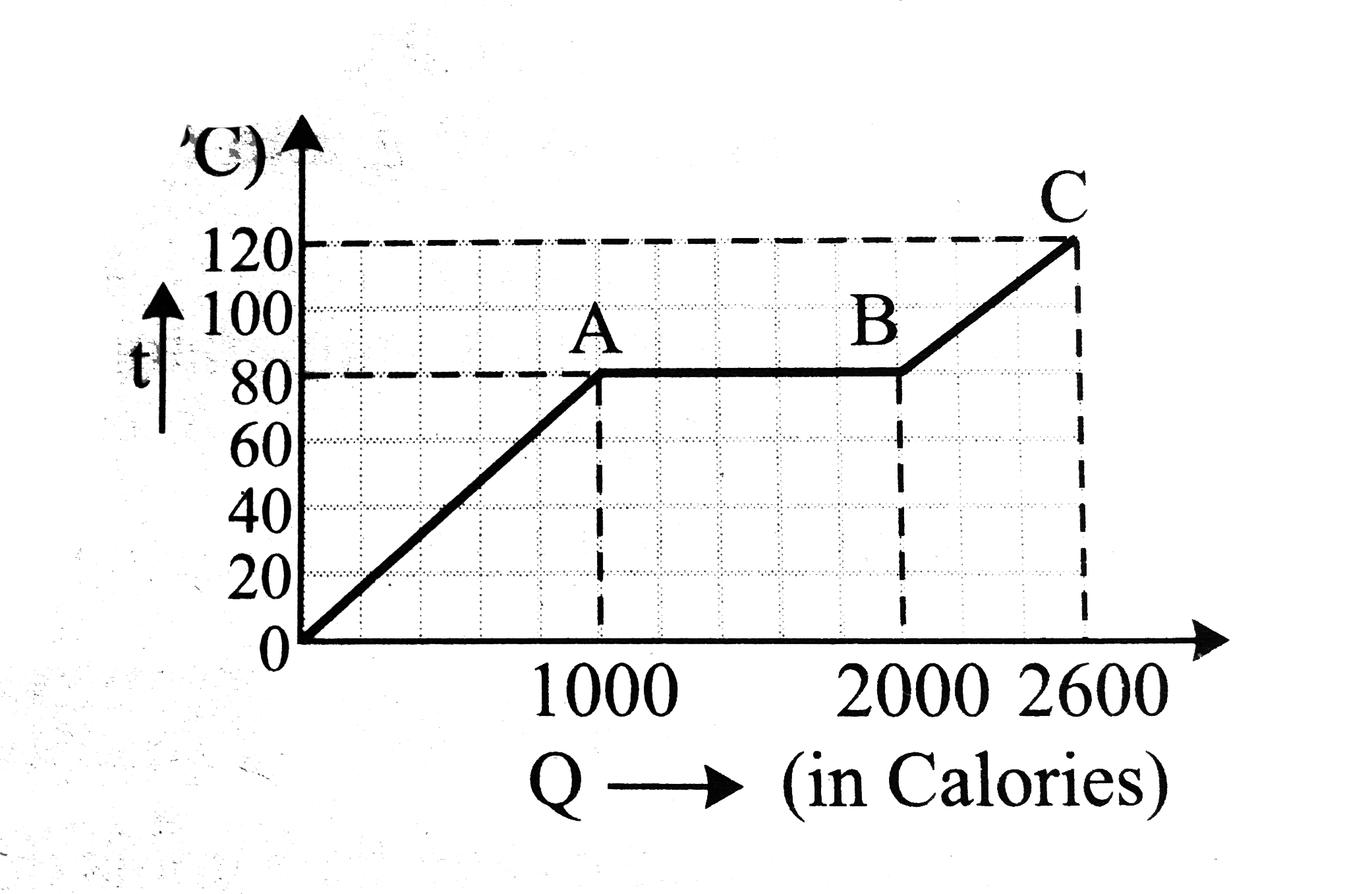What does it mean , If specific heat of a substance is infinite
heat is given out
heat is taken in
no change in temperature whether heat is taken in or given out
all of the above
The correct Answer is:C
To understand what it means if the specific heat of a substance is infinite, we can break it down step by step:
Step 1: Definition of Specific Heat
Specific heat (s) is defined as the amount of heat (Q) required to change the temperature of a unit mass (m) of a substance by one degree Celsius (or one Kelvin). Mathematically, this can be expressed as:
Q=m⋅s⋅ΔT
where:
- Q = heat added or removed
- m = mass of the substance
- s = specific heat
- ΔT = change in temperature
Step 2: Understanding Infinite Specific Heat
If the specific heat of a substance is infinite, it implies that an infinite amount of heat is required to change the temperature of that substance by just one degree Celsius. This can be interpreted as follows:
- For any finite amount of heat added or removed, the temperature change (ΔT) would be zero.
Step 3: Condition for Infinite Specific Heat
To achieve an infinite specific heat, the equation Q=m⋅s⋅ΔT suggests that for s to approach infinity, the change in temperature (ΔT) must approach zero. This scenario is characteristic of an isothermal process, where the temperature remains constant despite heat being added or removed.
Step 4: Conclusion
Therefore, if the specific heat of a substance is infinite, it means that the substance can absorb or release heat without any change in temperature. This is typically seen in theoretical scenarios or ideal substances, as real materials always have finite specific heats.
Summary
In conclusion, an infinite specific heat indicates that the substance can undergo heat transfer without any temperature change, which is a characteristic of an isothermal process.
---
Specific heat (s) is defined as the amount of heat (Q) required to change the temperature of a unit mass (m) of a substance by one degree Celsius (or one Kelvin). Mathematically, this can be expressed as:
Q=m⋅s⋅ΔT
where:
- Q = heat added or removed
- m = mass of the substance
- s = specific heat
- ΔT = change in temperature
If the specific heat of a substance is infinite, it implies that an infinite amount of heat is required to change the temperature of that substance by just one degree Celsius. This can be interpreted as follows:
- For any finite amount of heat added or removed, the temperature change (ΔT) would be zero.
To achieve an infinite specific heat, the equation Q=m⋅s⋅ΔT suggests that for s to approach infinity, the change in temperature (ΔT) must approach zero. This scenario is characteristic of an isothermal process, where the temperature remains constant despite heat being added or removed.
Therefore, if the specific heat of a substance is infinite, it means that the substance can absorb or release heat without any change in temperature. This is typically seen in theoretical scenarios or ideal substances, as real materials always have finite specific heats.
In conclusion, an infinite specific heat indicates that the substance can undergo heat transfer without any temperature change, which is a characteristic of an isothermal process.
Similar Questions
Knowledge Check
What does cruciate mean?
ATo crossBTo separateCTo join at an intersectionDTo collideWhat does aerobic mean?
AWithout oxygenBWith oxygenCBows and arrowsDNone of these
Define specific heat of body.
View SolutionCan specific heat of a gas be negative?
View Solution
A substance is in the solid form at 0∘C. The amount of heat added to this substance and its temperature are plotted in the following graph. If the relative specific heat capacity of the solid substance is 0.5, find from the graph (i) the mass of the substance, (ii) the specific latent heat of the melting process and (ii) the specific heat of the substance in the liquid state.
Specific heat capacity of water =1000cal/kg/K
View SolutionWhat does "Biology" means?
View SolutionState whether the specific heat capacity of a substance remains the same when its state changes from solid to liquid.
View SolutionSpecific heat capacity of water is
View Solution